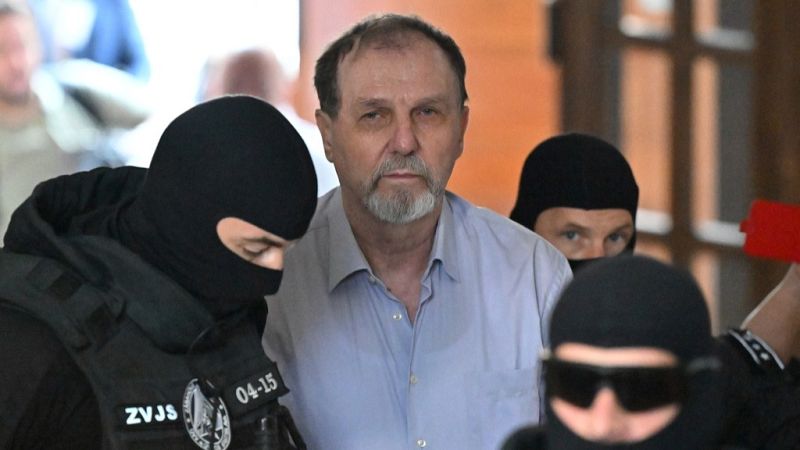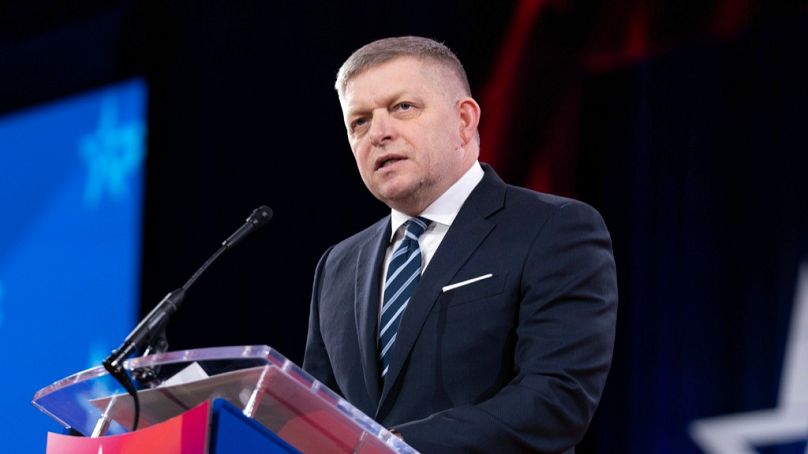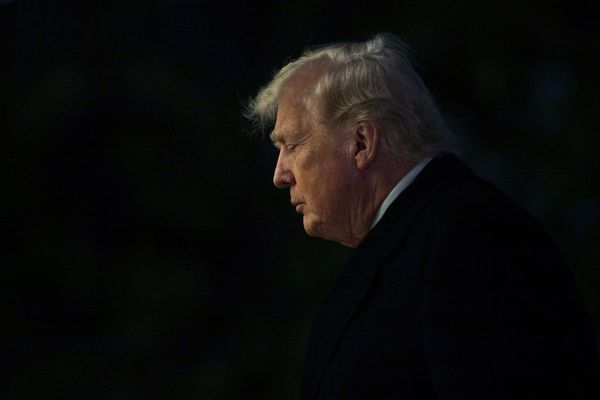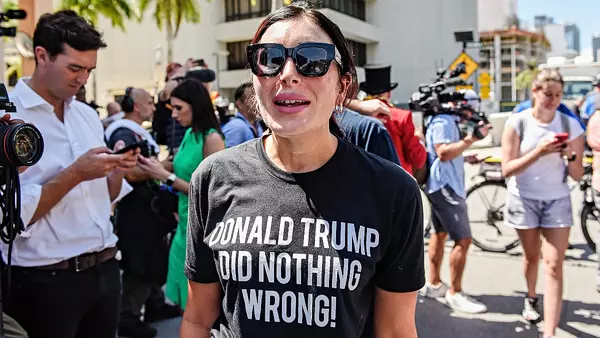
The man who shot and seriously injured Slovakia's Prime Minister Robert Fico last year went on trial on Tuesday on a terrorism charge that could see him imprisoned for life.
Juraj Cintula, 72, shouted "long live democracy, long live freedom" as he arrived at the Specialised Criminal Court in Slovakia's central city of Banská Bystrica.
Cintula is accused of shooting Fico on 15 May 2024, as the prime minister greeted supporters following a government meeting in the town of Handlová, located 140 kilometres northeast of the capital.
Fico was shot four times, including in the abdomen. He was taken to hospital, where he underwent a five-hour surgery, followed by another two-hour surgery two days later.
In testimony read by a prosecutor at the trial, Cintula said he disagreed with the state's policies, including the cancellation of a special prosecution office dealing with corruption, the end of military support for Ukraine and the government’s approach to culture.
"I decided to harm the health of the prime minister but I had no intention to kill anyone," Cintula had said, according to the testimony shared by the prosecutor.

The defendant refused to testify at the court on Tuesday but confirmed that what he told investigators about his motive was true.
Cintula was initially charged with attempted murder. Prosecutors later dropped that charge and said they were instead pursuing the more serious charge of engaging in a terror attack, based on evidence the investigators obtained.
At the trial, Cintula's lawyer said the defence rejected the terrorism charge.
The court has set hearings for Tuesday and Wednesday, with further dates possible later this year before a verdict is reached.
Slovak officials initially said that they believed the shooting was a politically motivated attack committed by a "lone wolf". However, they announced later that a third party might have been involved in "acting for the benefit of the perpetrator".
Fico previously said he "had no reason to believe" that it was an attack by a lone shooter and repeatedly blamed the liberal opposition and media for the assassination attempt.
The prime minister has long been a divisive figure in Slovakia and beyond. He returned to power for the fourth time after his leftist Smer party won the 2023 parliamentary election after campaigning on a pro-Russia and anti-Western platform.
Fico's critics say that he has abandoned Slovakia's pro-Western course and is following the same Moscow-friendly direction as Hungary under its Prime Minister Viktor Orbán.
Thousands of people have repeatedly rallied in the capital and across Slovakia to protest Fico's pro-Russian stance and other policies.







